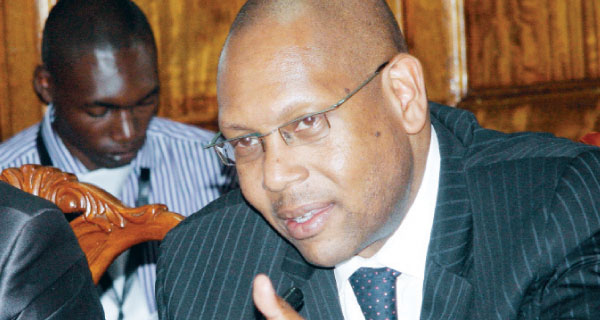×
The Standard e-Paper
Home To Bold Columnists
 |
| Transport Principal Secretary Nduva Muli |
By MWANIKI MUNUHE
KENYA: The construction of the Standard Gauge Railway has raised a major national storm. The Standard on Sunday Senior Writer MWANIKI MUNUHE got hold of Transport Principal Secretary Nduva Muli to respond to concerns raised on the project.